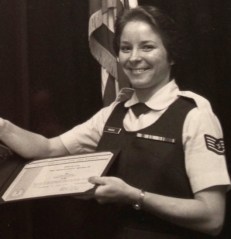Female Marine recruits training at Parris Island.
With recent investigation of the Army coordinator of one of Fort Hood’s sexual-abuse prevention programs, coupled with the arrest of an Air Force officer in charge of his service’s sexual-assault prevention program, dismay is surging up every link of the U.S. military’s chain of command. Apparently, the “zero tolerance” policy to combat sexual harassment adopted by the U.S. military in the 1980s isn’t working.
Today, the spotlight isn’t only on the problem itself, but on the military’s policy for handling it and the leadership in charge of eradicating the epidemic of abuse. The Pentagon’s leaders know it’s reaching a critical stage. “We’re losing the confidence of the women who serve that we can solve this problem,” Army General Martin Dempsey, chairman of the Joint Chiefs of Staff, told reporters as he returned Tuesday from NATO meetings in Brussels. “That’s a crisis.”
With an estimated 26,000 troops experiencing sexual assaults last year, it’s clear that current program responses aren’t rooting out the problem. In fact – in these two most recent cases — those charged with eliminating the problem are the problem.
Defense Secretary Chuck Hagel has said that the disturbing trend “could very well undermine our ability to effectively carry out the mission and to recruit and retain the good people we need.” According to the Military Times, Hagel has called for “close-up and comprehensive inspection of all military offices and workplaces worldwide to root out any materials that create a degrading or offensive work environment.”
The Pentagon estimated that 80% to 90% of sexual assault cases go unreported. When surveyed, 26% of Marine female respondents said they feared retaliation for speaking up and 62% reported they suffered retaliation for reporting sexual assault allegations to a commander.
As a former enlisted member of the Air Force, the recent news disturbs me. This month marks the 14th annual National Military Appreciation Month, as designated by Congress in 1999. It’s a shame that during the timeframe when the focus should be on celebrating and commemorating our military’s achievements, degradation and shortfalls are instead receiving the national spotlight.
A wake-up call is needed not only inside our military culture, but across the nation at large.
According to Division of Violence Prevention statistics, nearly one in five women, and one in 71 men, have reported being raped at some point in their lives. The founder of “The Date Safe Project” has been working to clear up misconceptions about sex, respect, dating, and intimacy since 1990. Mike Domitrz and his five-member team have opened people’s minds in schools, workplaces, and military installations around the globe.
In a recent press conference, President Obama essentially called for an end to the same speeches, awareness programs, training, and behaviors that aren’t addressing the root of the problem. Perhaps, the military and other conglomerates could use a few lessons from a “one person show” such as The Date Safe Project. Perhaps, the prerequisite is having a heart for the job. For Domitrz, the mission began in response to his sister being raped.
I first heard the term “MST” last summer, while leading a workshop at the Military Experience and The Arts Symposium. “Military Sexual Trauma” put a face on what had occurred during my years of service back in the “zero tolerance” era.
When I reported that the non-commissioned-officer-in-charge had committed sexual battery against me, I was quietly relocated.
He was counseled for drinking too much at the party – in celebration of his child’s first birthday. The allegations I filed through the Office of Social Actions were dismissed. I later learned that my new officer in charge was forewarned about the “arriving female airman being too sensitive.”
Sadly, I also learned that my former supervisor had had his way with other women in the office.
I was considered “uncooperative.”
For the first time, I share my story publicly, with the hope of eliciting some deeper thinking:
— What’s really has changed in the military’s handling of sexual assault?
— Why is the root of the problem seemingly so pervasive and difficult to dig out?
— Where is the spotlight on exemplary military leaders?
As a former military member and a military spouse, I’m deeply honored and proud to be part of its culture. The exemplary leaders I served beside far surpassed any who fell short. If called up tomorrow, I would eagerly serve my country again.
The latest sexual scandals and the military’s all-to-familiar response, stirred some “below the surface” emotions in me. Honestly, that caught me a little off-guard. President Obama’s declaration of zero tolerance and punishment captured one frequently missing piece — actions have consequences. However, the notion of zero tolerance felt like lip service, given my own experience.
To me, here’s the bottom line: Those exemplary leaders who are serving, and have served, must speak out, just as I have done, to reset the standard.
Maryann Makekau is an Air Force veteran, spouse of a retired member, and mother of two grown military children. She’s also an author and founder of Hope Matters.


